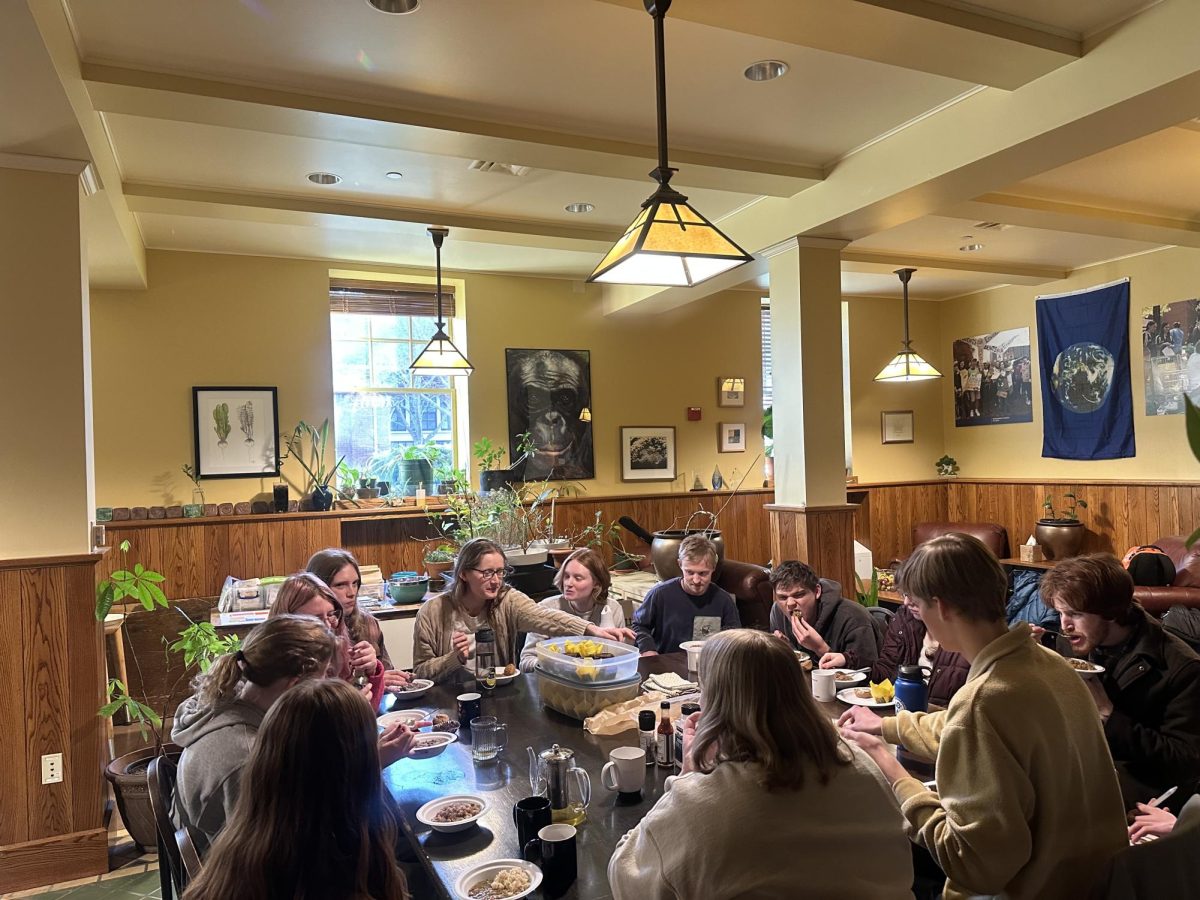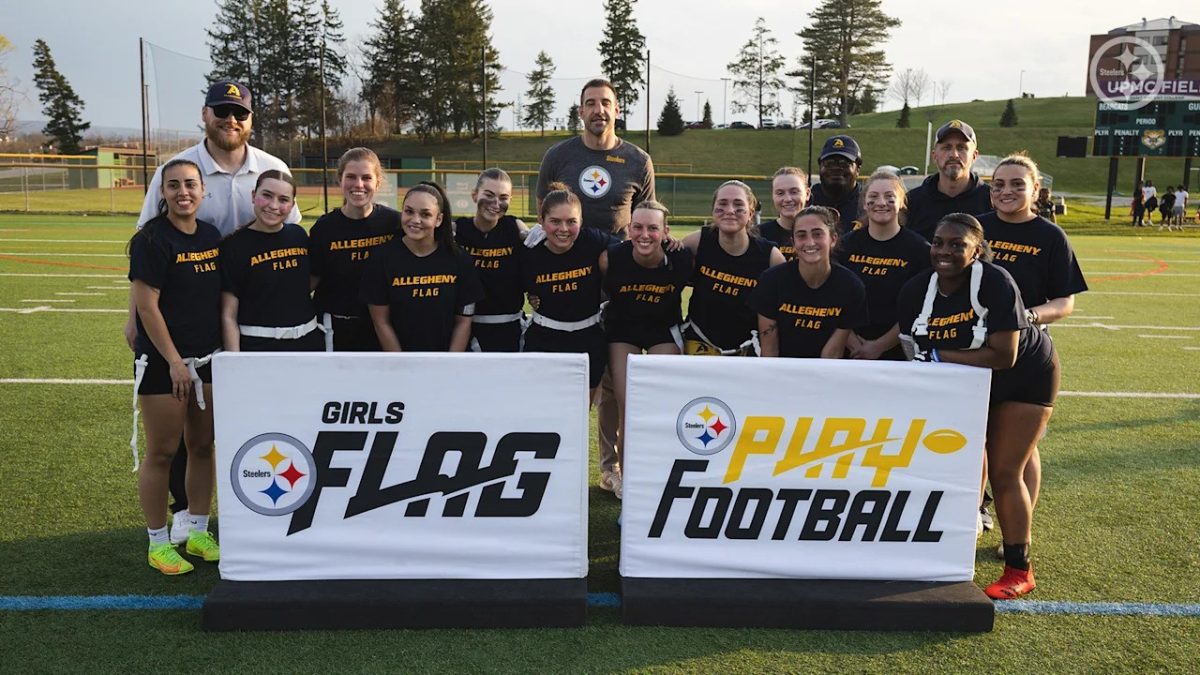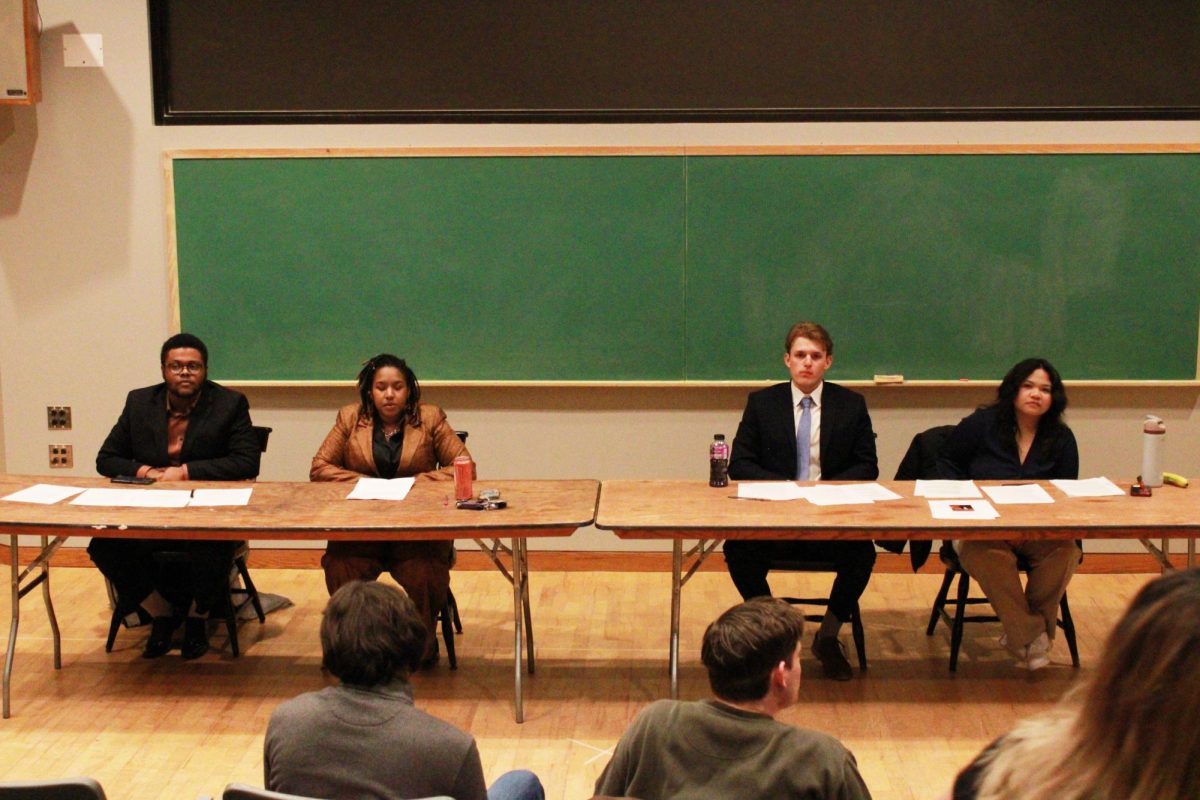By COLLEEN PEGHER
Editor-in-Chief
pegherc@allegheny.edu
This coming May, a group of Allegheny students will travel to Nicaragua for a 13-day immersion experience, during which they will work at Project Chacocente, a resettlement project for families who once lived in the country’s garbage dump. To raise money for the project, students will organize their annual rummage sale, “Gators Give Back”, collecting items that students no longer want or need at the end of the school year.
Prior to their trip, students learn about recent events in Nicaraguan history, the culture and social issues facing Nicaraguans today, particularly those without healthcare. Interested students are asked to submit an application for the Experiential Learning (EL) trip, and participants are selected following interviews. The EL seminar is taught by Michaeline Shuman, director of the career education office and Kirsten Peterson, the pre-health and pre-education adviser. It began in 2007 through the collaborative efforts of Shuman and Dave Roncolato, the director of community service and service-learning for the college.
Shuman, a former member of the Peace Corps, was inspired by her own experience in working with the Nicaragua EL and the Gators Give Back Rummage Sale.
“Before I served in the Peace Corps, I did a volunteer vacation in Guatemala to sort of test the waters,” said Shuman. “In that time, I saw how wasteful we are. We jump in our car and go to Walmart to get one thing and come out with 20. Being in the Peace Corps made me think about how we can reuse and recycle materials more efficiently. “
Following the inaugural trip in 2007, students felt inspired to do more, which led to the idea of holding the rummage sale. In the spring, boxes are placed in dorms to collect items that Allegheny students wish to discard. After the items are collected, they are sold at the rummage sale to members of the Meadville community.
“Members of the community count on that sale to buy their families clothes for the year,” Shuman said. “There are members of local non-profits who come to buy for people who have been displaced from housing.”
The sale is typically held at a local church two days before graduation. In recent years, the sale has been held at Stone Church. Ninety percent of the proceeds are donated to Project Chacocente, and 10 percent is given to local non-profits.
Shuman described the wide variety of items donated by students, including mini refrigerators, unworn clothes, school supplies and more than 500 pounds of canned food.
“We’re talking a lot of stuff. If you think about three of the Wise Center blue courts, that’s how much stuff we’re talking about,” Shuman said.
Hillary Fenrich, ’14, worked to establish a “free store” in Carr Hall, inspired by her time in Nicaragua and work with Gators Give Back.
“In my [environmental science] Junior Seminar, I worked with a few of my peers to develop the Free Store located in the Carr Hall lounge. Essentially, this space is like a thrift store – but everything is free,” said Fenrich. “Donations are taken year-round and it’s audience is mainly college students and the faculty. However, at the end of the school year, the remaining items are donated to the GGB sale to give back to the community.”
Fenrich described the experience on the 2012 Nicaragua trip as life-changing.
“Volunteering in Nicaragua opened up my eyes to a number of things: the negative correlation between the amount of stuff in life and happiness levels, international social injustices, sustainable and unsustainable manners to offer assistance, the downfalls of even offering “assistance” as if I have more to give than they,” said Fenrich.
Students who traveled to Nicaragua in 2012 not only praised the educational value of trip, but also recalled the experience of bonding with the people they met.
Erica Bryson, ’15, took away a new understanding of Nicaraguan culture through the time she spent with the people there.
“I loved every minute of my experience; however, I would have to say that sharing American dance moves with the Nicaraguan community, like the cat daddy and the wop, and in return, learning their dance moves is my favorite memory,” said Bryson. “I think it is remarkable how certain elements of culture are truly universal, including dance and laughter.”
Bryson also plans on incorporating her experience on the trip into her senior project.
“From my experience in Nicaragua I have developed a greater interest in public health and disparities around the world,” said Bryson. “I am hoping that my senior comp will be focused on the health determinants that have negatively impacted the rural health in Nicaragua.”
Courtney Morando, another member of the group who traveled to Nicaragua in 2012, says that the trip played a prominent role in shaping her future ambitions and gave her a deeper appreciation for other cultures.
“The EL trip was so influential, eight of us returned the following year for spring break,” said Morando. “Participating in this EL trip made me realize how important it is to travel abroad and experience new cultures. Even if there is a language barrier, it is amazing to see the connections you can still make with that people.”
Fenrich, Bryson, Morando and Shuman, encourage students to get involved with Gators Give Back, even if they are not going to Nicaragua.
“All students should contribute some of the belongings that they otherwise would throw away and come down to check out the sale,” said Bryson.
Gators Give Back will begin collecting items later this spring. The sale will be held at Stone Church on May 8 and 9, prior to graduation.
Former students involved in the EL trip and Gators Give Back hope that it will continue well into the future.
Fenrich credits Shuman and Peterson for providing students with a program that inspires its participants.
“It gets into your head and you just can’t get it out.”









